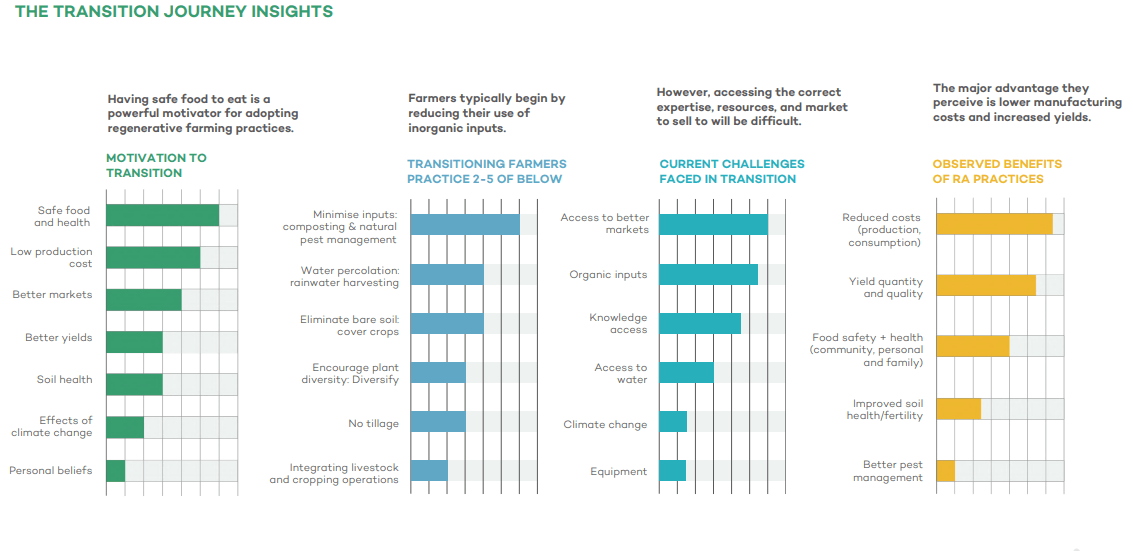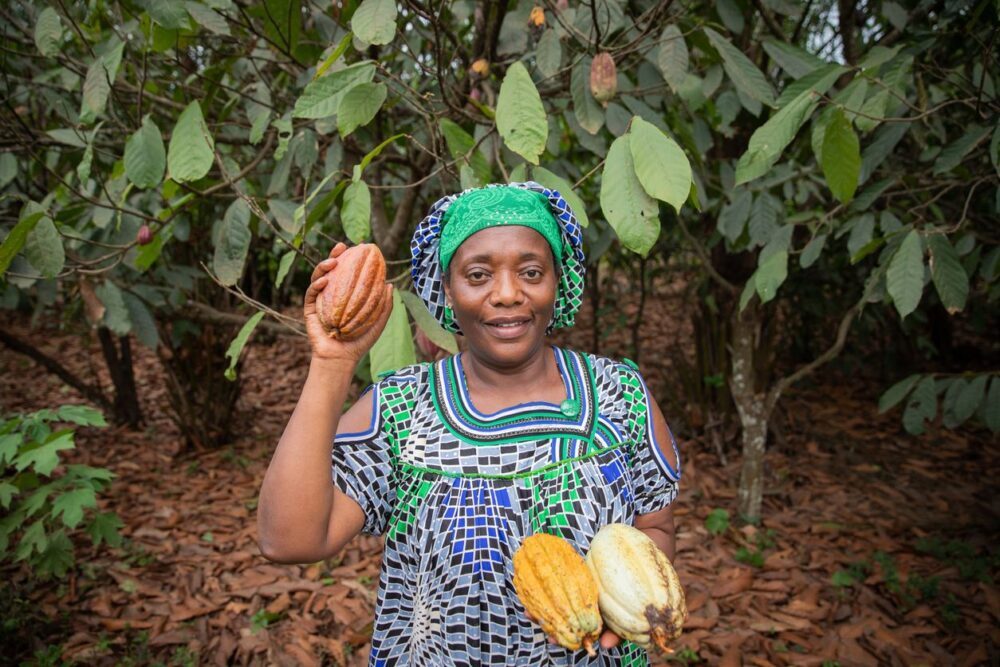Regenerative agriculture is a common term among farmers in the global north today. A wide range of investors, corporations and innovations are all vying to play a role in the transition of the world’s acres to a method of farming that’s mooted to be able to improve soil health, increase yields long term, reverse desertification, protect biodiversity, sequester carbon and otherwise reduce the negative externalities of conventional, synthetic and chemical input-based agriculture.
In the global south, where farmers have not had the same access to high quality, and potentially damaging, fertilizers and pesticides, the regenerative agriculture movement has been slower. It’s also likely that in the absence of these inputs, several farmers may already be farming somewhat regeneratively, a farming approach and set of practices that indigenous populations have used across the globe for thousands of years.
In Africa, as farmers increasingly feel the adverse effects of climate change, exacerbating the low yields already associated with smallholder farming, organizations are starting to work with farmers to help them transition their farms and improve their livelihoods.
Dutch venture builder Enviu, which has operations in East Africa, is one such proponent of adapting regenerative agriculture practices in the region. For Enviu, regenerative agriculture includes helping farmers minimize their tillage as well as use of inorganic inputs, diversifying their crops, livestock integration to help with soil fertility, cover cropping and rain water harvesting mechanisms.
“The reason farmers have been having some of these production challenges is really around the effects of climate change and soil degradation. Compounded, that has meant that farmers are really sinking deeper and deeper into poverty,” Kenneth Kiunga, venture builder of the regenerative agriculture program at Enviu, tells AFN.
Enviu just released a report detailing the results of a survey it conducted with 50 Kenya farmers to get their take on the movement.
Data compiled in the report from The International Union for Conservation of Nature (IUCN) shows a remarkable increase in yields in regions where regenerative agriculture projects have been ran.

Here are other key takeaways.
Access to knowledge is the biggest barrier to farmer adoption of regenerative agriculture.
Kiunga notes that even though there are a lot of organizations introducing these practices to farmers, the information needs to be packaged in a transition-like manner, as opposed to just posing them as immediate solutions to immediate problems.
“The knowledge needs to be step by step in a way that a farmer can see how they get from the current state of their farm and see what their farm should look like three to four years down the line,” he says.
“That step by step access to knowledge we found was missing and is something that could really go a long way because a lot of the resources that farmers need to transition are available to them within their communities.”
Farmers feel that there should be an immediate market reward.
There is extra effort that goes into making sure a farm’s biodiversity is restored, using these practices.
Kiunga notes that speaking to farmers, some questioned whether the market price for their produce would still be the same as that of a farmer who didn’t adopt these practices.
“We realize that there is actually a challenge in trying to put that together because even if you look at organic farming, which has been there for a long time, the market side is still not well developed, especially in Kenya and Africa,” Kiunga says.
The solution he poses could be to make regenerative agriculture as affordable as conventional farming for farmers, if not cheaper. This way, farmers won’t have to turn to the market to correct the difference that arises with adopting these practices.
Cost is another key concern for farmers
According to Kiunga, farmers look at the level of effort that is required to transition to regenerative agriculture within a period of time and find it quite expensive for me to do.
Regenerative agriculture is closer to farming in a more natural way, but that’s not the perception that farmers would have.
“Regenerative agriculture has been defined or confused with organic farming. A lot of the regenerative agriculture transition curriculums or programs out there are often founded on the principles of organic farming,” he says.
There’s 100% willingness by farmers to adopt regenerative agriculture
Kiunga notes there’s a lot of enthusiasm from farmers to adopt these practices. They are very familiar to farmers because they revolve around working with natural systems.
“Smallholder farmers who may not be able to afford synthetic solutions to their problems often solve those problems by looking around their community to see how they can meet farming objectives with what they have,” Kiunga notes.
In addition, farmers are willing to embrace these practices as this farming system creates a sense of community, which Kiunga notes ‘it’s almost impossible to do this (regenerative agriculture) if you’re not building it as a community.’
“They love that their communities become healthier and safer. And that’s not as hard a sell as I thought it would be. This is something they really get intuitively.”
It’s not surprising then, that the biggest motivator for farmers surveyed to transition to regenerative agriculture was the ability to produce safe food.

Download the full report HERE.





